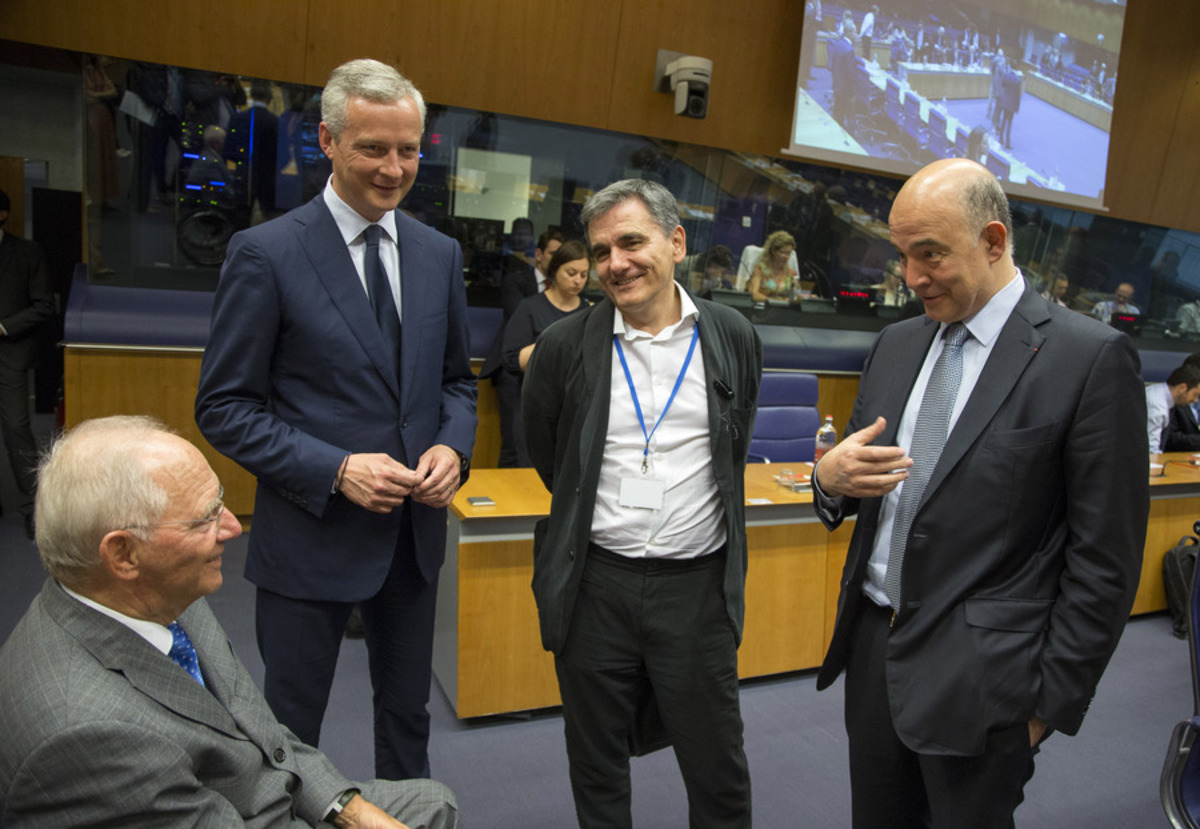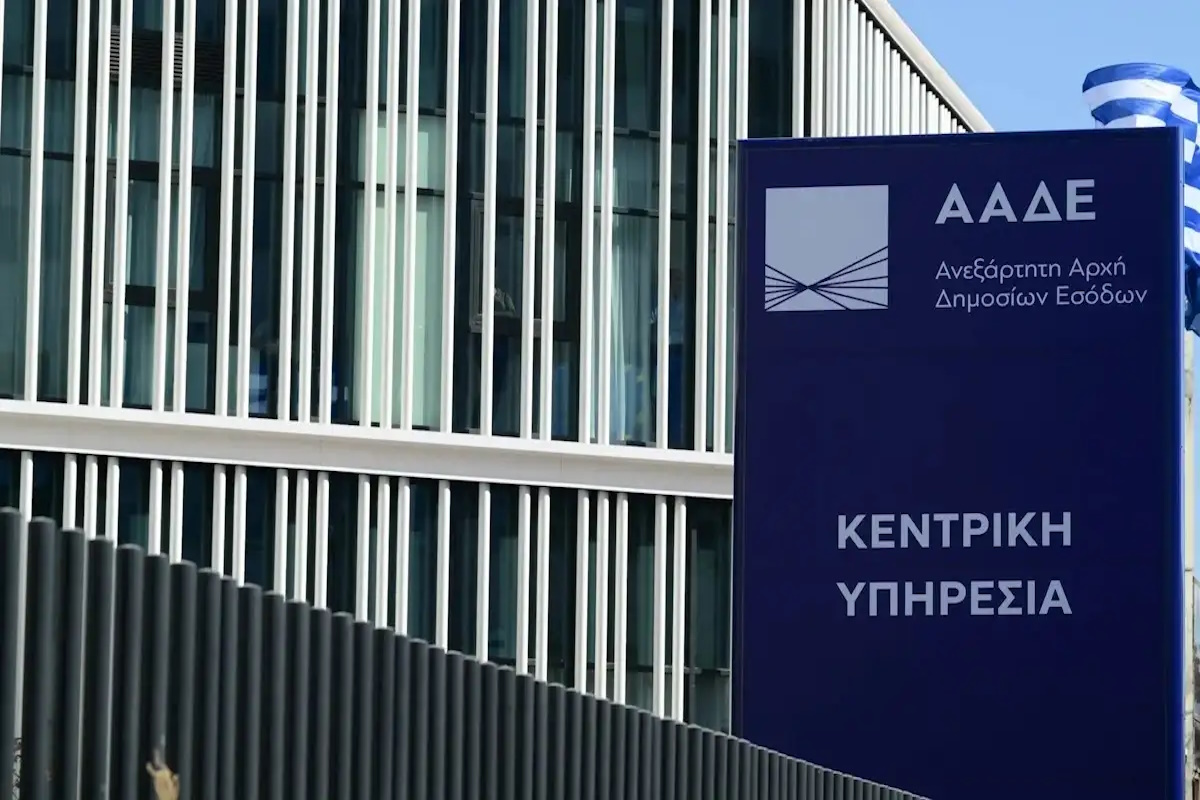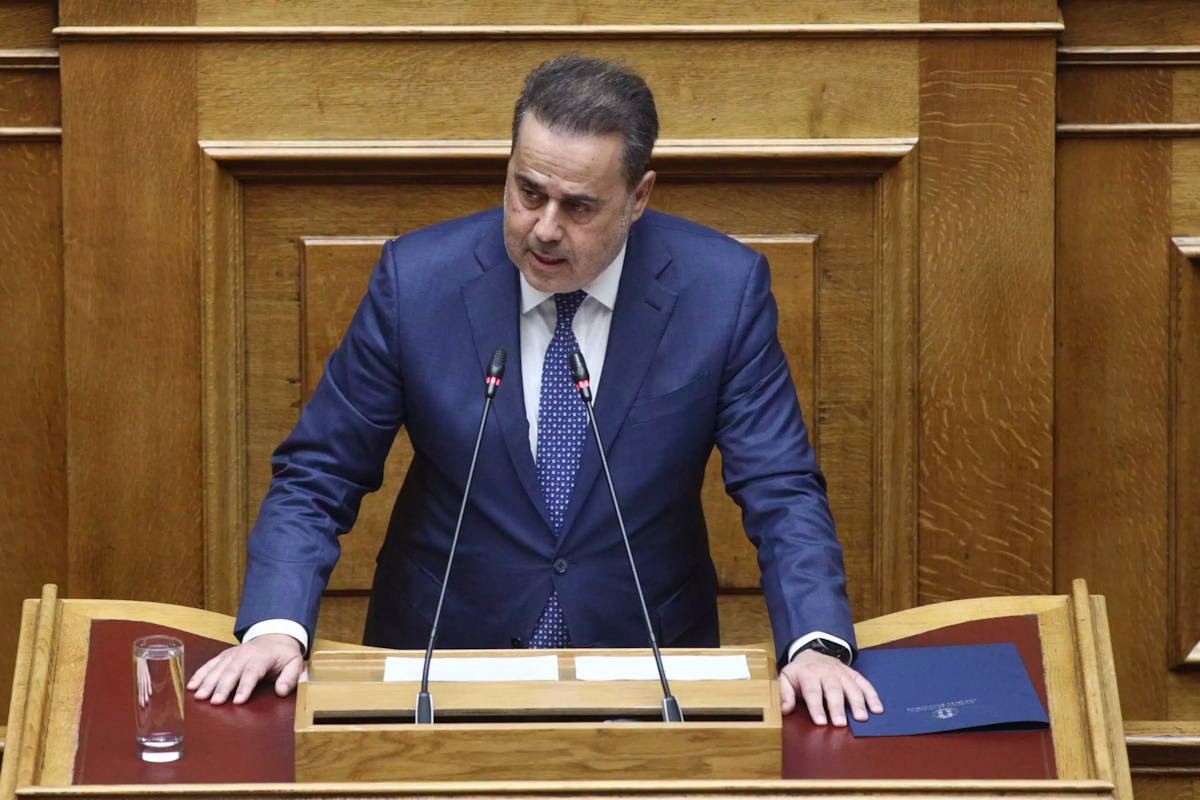Στο κείμενο της συμφωνίας υπάρχει η παράγραφος “κλειδί” που αποκαλύπτει και το μεγαλύτερο επίτευγμα, που αφορά την έξοδο της χώρας μας στις αγορές.
Όπως αναφέρεται χαρακτηριστικά: “Στο τέλος του τρέχοντος προγράμματος, τον Αύγουστο του 2018, το Eurogroup δεσμεύεται να παρέχει στήριξη στην Ελλάδα για την επιστροφή της στις αγορές: το Eurogroup συμφωνεί ότι οι επόμενες εκταμιεύσεις θα πρέπει να καλύπτουν όχι μόνο την ανάγκη εκκαθάρισης του χρέους, αλλά και την περαιτέρω δημιουργία ταμειακών διαθέσιμων, έτσι ώστε να στηριχθεί η εμπιστοσύνη των επενδυτών και να διευκολύνει την πρόσβαση στις αγορές”.
ΔΙΑΦΗΜΙΣΗ
– Εύσημα από τους θεσμούς για το φιλόδοξο δημοσιονομικό πακέτο που υλοποιεί η Ελλάδα
– Πρόσκληση προς την Ελλάδα μαζί με τους θεσμούς να καταστρώσουν μια στρατηγική ανάπτυξης που θα περιλαμβάνει και τη βελτίωση στο επενδυτικό κλίμα
– Θα πρέπει να αναζητηθούν άλλες προοπτικές κινητοποίησης πρόσθετων κονδυλίων από επενδυτικές τράπεζες και διεθνείς οικονομικούς θεσμούς
– Στο θέμα της βιωσιμότητας του χρέους ο στόχος είναι η Ελλάδα να βγει στις αγορές με βιώσιμα επιτόκια
– Επιβεβαιώθηκαν οι δεσμεύσεις και οι αρχές όπως αναφέρονται στο ανακοινωθέν του Μαΐου του 2016
– Δέσμευση από την Ελλάδα για πρωτογενή πλεονάσματα 3,5% μέχρι το 2022 και ίσα ή πιο υψηλά, αλλά πάντως κοντά στο 2% του ΑΕΠ για την περίοδο 2023-2060
– Η βιωσιμότητα του χρέους θα πρέπει να επιτευχθεί στο πλαίσιο των μέτρων που αναφέρονται στο ανακοινωθέν του περασμένου Μαΐου (δηλαδή όχι κούρεμα, όχι μεταφορά χρημάτων)
– Σ’ αυτό το πλαίσιο οι ακαθάριστες χρηματοδοτικές ανάγκες στην Ελλάδα θα πρέπει να είναι κάτω από το 15% του ΑΕΠ μεσοπρόθεσμα και κάτω από το 20% στη συνέχεια προκειμένου να διασφαλιστεί ότι το χρέος παραμένει σε βιώσιμη τροχιά.
– Το Eurogroup είναι έτοιμο να εφαρμόσει ένα δεύτερο πακέτο μέτρων για το χρέος εφόσον χρειαστεί προκειμένου να επιτευχθούν οι στόχοι που τέθηκαν παραπάνω, πάντα, όμως, στα πλαίσια που έχουν οριστεί από τον Μάιο του 2016.
ΔΙΑΦΗΜΙΣΗ
“The Eurogroup welcomes that agreement has been reached between Greece and the institutions on a policy package of structural measures, which aims at shoring up growth and addressing the underlying structural imbalances in public finances and paves the way for a successful completion of the second review of the ESM programme.
The Eurogroup also welcomes the adoption by the Greek parliament of the agreed prior actions for the second review, notably the ambitious post-programme fiscal package, which is composed of an income tax reform broadening the tax base and a pension reform. Together they deliver net savings of 2% of GDP which will underpin the fiscal targets post-2018. It also contains a contingent expansionary package to enhance the growth potential of the Greek economy and to improve the Greek social safety net that will be implemented provided that the agreed medium-term targets are met. We also welcome the adoption of a package of decisive measures to effectively address non-performing loans (NPL), such as establishing an active secondary market, an Out-of-Court Debt Workout framework, as well as all actions to make the Hellenic Corporation of Assets and Participations (HCAP) fully operational.
Moreover, the policy package includes a large number of structural measures aimed at enhancing the growth potential of the Greek economy. With regard to labour market reforms, the Eurogroup welcomes the adopted legislation safeguarding previous reforms on collective bargaining and bringing collective dismissals in line with best EU practices. The Eurogroup also commends the Greek authorities for adopting legislation to implement OECD recommendations to strengthen competition, to facilitate investment licensing and to further open-up regulated professions. We welcome the commitment by Greece to continue on its reform path.
The Eurogroup also commends Greece and the European Commission for the exceptional mobilisation of EU Funds to boost investment in support of jobs and growth since July 2015, for a total amount of nearly EUR 11 bn. The Eurogroup calls upon the Greek authorities to work closely with the European Commission to ensure that additional EUR 970 million made available following the review of the national cohesion policy funding envelopes for the period from 2017 – 2020 are fully absorbed. Furthermore, we commit to continue to provide high-level experts to support the design and implementation of reforms through technical assistance projects.
In parallel the Eurogroup invites Greece together with the institutions as well as relevant third parties by the end of this year to develop and support a holistic growth enhancing strategy including improvements of the investment climate. Further options for mobilizing additional funds from national development banks and other international financial institutions (such as the EIB and EBRD) should be explored.
The Eurogroup supports the efforts of the Greek authorities to work with the European institutions on the creation of a National Development Bank that would coordinate the implementation of development and promotional activities. The Eurogroup calls upon Greece, the European Commission and IFIs to work together to strengthen the pipelines of viable investment projects. Efforts should be made to step up the technical assistance from the European Investment Advisory Hub with a view to facilitating the preparation of investable projects and the establishment of investment platforms.
Today the Eurogroup discussed again the sustainability of Greek public debt with the objective that Greece regains market access at sustainable rates. The Eurogroup reconfirmed the commitments and principles contained in the statements of May 2016. We noted that the implementation of the agreed short term debt measures already contributes to a substantial lowering of the gross financing needs (GFN) of Greece over the medium and long term and significantly improves the profile of Greek public debt.
The Eurogroup welcomes the commitment of Greece to maintain a primary surplus of 3.5% of GDP until 2022 and thereafter a fiscal trajectory that is consistent with its commitments under the European fiscal framework, which would be achieved according to the analysis of the European Commission with a primary surplus of equal to or above but close to 2% of GDP in the period from 2023 to 2060.
The Eurogroup concluded that debt sustainability should be attained within the framework of the debt measures envisaged by the Eurogroup in May 2016. In this regard, the Eurogroup recalled the assessment of debt sustainability with reference to the agreed benchmarks for gross financing needs: GFN should remain below 15% of GDP in the medium term and below 20% of GDP thereafter so as to ensure that debt remains on a sustained downward path.
The Eurogroup recalls that it stands ready to implement a second set of debt measures to the extent needed to meet the aforementioned GFN objectives, in line with the Eurogroup statement of 25 May 2016. This includes abolishing the step-up interest rate margin related to the debt buy-back tranche of the 2nd Greek programme, the use of 2014 SMP profits from the ESM segregated account, the restoration of the transfer of the equivalent of ANFA and SMP profits to Greece (as of budget year 2017), liability management operations within the current ESM programme envelope taking due account of the exceptionally high burden of some Member States, and EFSF reprofiling within the maximum Programme Authorised Amount.
The Eurogroup stands ready to implement, without prejudice to the final DSA, extensions of the weighted average maturities (WAM) and a further deferral of EFSF interest and amortization by between 0 and 15 years. As agreed in May 2016, these measures shall not lead to additional costs for other beneficiary Member States.
In order to take into account possible differences between growth assumptions in the DSA and actual growth developments over the post-programme period, the EFSF reprofiling would be recalibrated according to an operational growth-adjustment mechanism to be agreed. This mechanism will be fully specified as part of the medium-term debt relief measures, following the successful implementation of the ESM programme to make sure the GFN benchmarks defined above are respected and to ensure that the ceiling established by the EFSF Programme Authorised Amount is respected. The Eurogroup mandates the EWG to work further on this as of 2018.
At the end of the programme, conditional upon its successful implementation and to the extent necessary, this second set of measures will be implemented. The exact calibration of these measures will be confirmed at the end of the programme by the Eurogroup on the basis of an updated DSA in cooperation with the European institutions, so as to ensure debt sustainability and compliance with the European fiscal policy framework”.









